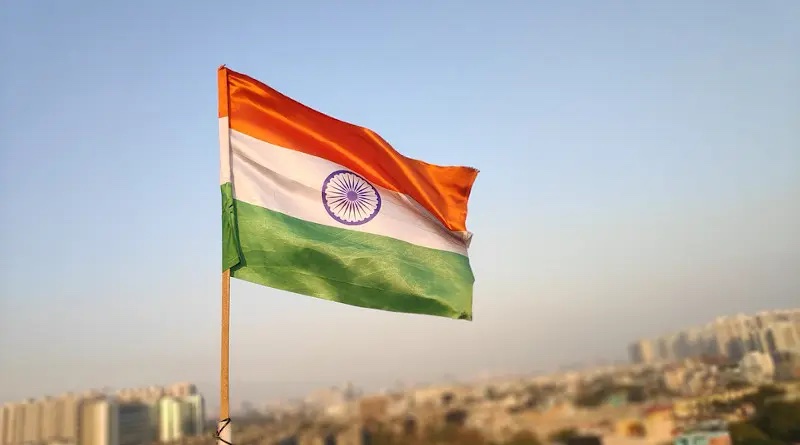Urban Terrorism: India Must Get Its Act Together – Analysis
By IPCS
By Gurmeet Kanwal
On 26 November 2008, a new type of tsunami hit Mumbai, India’s commercial capital. Ten mercenary marauders from Pakistan’s Lashkar-e-Toiba, armed, trained, equipped and controlled by ISI handlers, sneaked in undetected from the sea and attacked innocent civilians returning home after work at the Chhatrapati Shivaji Terminus. During the course of the evening, they also attacked two upmarket hotels, a Jewish centre, a hospital and a café. By the time they were through with their plans, they had left almost 170 people dead and over 300 injured, including several police officers and personnel. It took India’s National Security Guard (NSG), an elite counter-terrorism commando force, 60 hours to flush them out and end their orgy of violence. One terrorist was captured alive. Though he confessed publicly that he was from Pakistan, his country (initially) disowned him – in keeping with its short-sighted policy of living in constant denial of all major acts of international terrorism being eventually traced back to Pakistan.
The age of ‘new terrorism’ – as it has come to be called –actually hit India with the Mumbai serial bomb attacks of March 1993, well before the term became prevalent and in the same year when a group of Islamist extremists launched the first attack on the World Trade Centre in New York. In 1995, Aum Shinrikyo attacked the Tokyo underground with Sarin gas. Soon after that, a large truck bomb killed 168 people in Oklahoma City and visions of apocalypse through terrorism began to haunt the world. The London and Madrid train bombings further heightened the pervasive fear psychosis. Walter Laqueur, the well known terrorism historian, wrote in 1999 that the character of terrorism was assuming alarming proportions and changing in a revolutionary manner. “Rather than the vicious yet calculated application of violence that everyone had become familiar with, the world was now confronted with terrorists whose aim was ‘to liquidate all satanic forces [and destroy] all life on earth’.”
The 11 September 2001 attacks were a catastrophic confirmation of a major shift in the trend-lines of transnational terrorism and there is now ready agreement that the age of ‘new terrorism’ is well and truly upon us. Even as the world attempts to enhance its understanding of what exactly has changed, four pointers can be clearly discerned. Firstly, modern terrorist organisations are both diffuse and opaque in nature. They have cellular structures that resemble networks, rather than a clearly demarcated chain of command. Secondly, they are increasingly more transnational in their geographical spread, with shifting centres of gravity and constantly changing recruitment bases. Thirdly, their ideological motivations are driven by religious fundamentalism and they seek to achieve their political objectives through radical extremism even though no religion justifies violent means. Finally, modern terrorism is far more violent than ‘old’ terrorism. In the mid to late 20th century, terrorist organisations wanted “a lot of people watching, not a lot of people dead” but this has changed and they now wish to inflict horrendous casualties so that they can impose their will on governments and societies.
India’s response to the Mumbai terror attacks was slow, laborious and poorly coordinated among the Central and the State governments and their various agencies. Coastal security was virtually non-existent; the marine police were too few in number for effective patrolling; they were ill-equipped and inadequately trained; and, there was poor coordination between the Coast Guard and the Marine Police. It took far too long to begin flushing out operations and then to eliminate the nine terrorists who were holed up at three separate locations. The army battalion located at Mumbai was only given the responsibility to establish a perimeter cordon when its could have launched flushing out operations at least three hours before the NSG commandos arrived on the scene and before the terrorists had consolidated their positions. The media were telecasting live pictures of ongoing military operations when they should have been at least a couple of kilometres away from the scene. Generally speaking, the response of the internal security mechanism was tardy and left much to be desired.
The Mumbai terror attacks have left a deep scar on the national psyche. The mood in the country, particularly in the urban areas that have been the victims of new terrorism, is that of anger and grim determination. If there is another attack of a similar magnitude – and given the extent of radical extremism and creeping Talibanisation in the neighbourhood, there will surely be many more such attacks – the Indian people will demand military retribution against the perpetrators and their handlers. And, that could mean war if a clear linkage can be established with state sponsors of terrorism from across India’s western border. The apprehension of Abu Jindal with help from Saudi Arabia has once again pointed the finger at the state sponsorship of terrorism from across India’s western border.
The central and state governments have no option but to successfully defeat the terrorist organisations that are inimical to India’s national security interests and are determined to create a communal-sectarian schism with a view to destabilising India on behalf of their handlers in the ISI and the Pakistan army. They must be prevented from launching major terrorist strikes in future and, in case some terrorists do manage to sneak through comprehensively organised and coordinated intelligence and police defences, they must be quickly eliminated – with minimum collateral damage. Like many other countries, India is in for the long haul in the war on terror.
Gurmeet Kanwal
Delhi-based Defence Analyst
email: [email protected]

